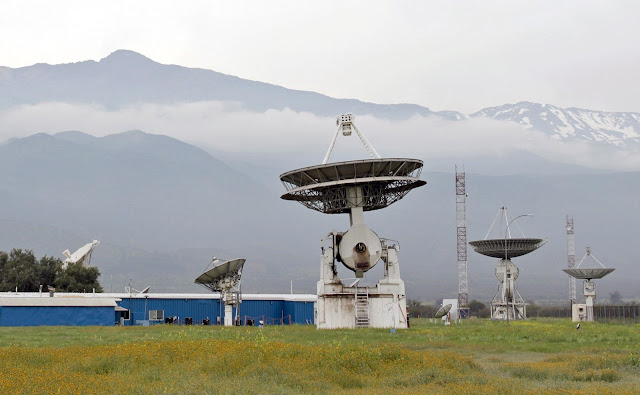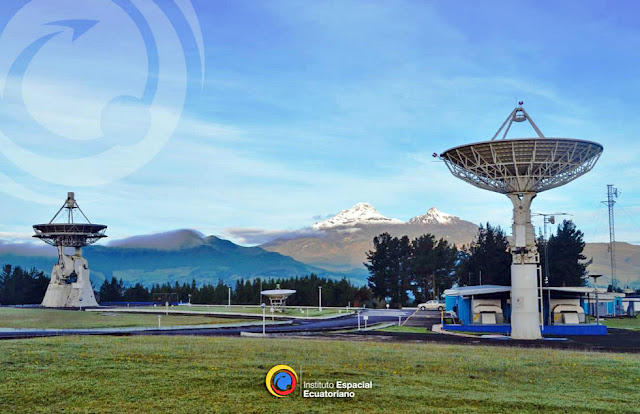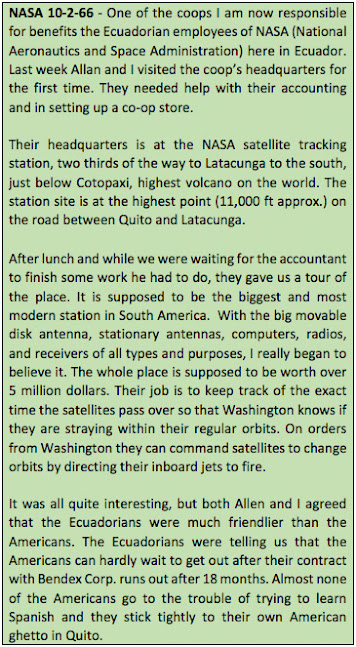 |
Former NASA satellite tracking station in Chile
|
Space Activity
In August 1957, the United States, through NASA (the
National Aeronautics and Space Administration) installed on the slopes
of Cotopaxi Volcano, a Satellite Tracking Station
for the purpose of monitoring and controlling the orbit of American satellites.
 |
NASA rocket on the launch pad
|
In 1981, fifteen years after our visit to the satellite tracking station, NASA ended 25 year’s of tracking US space satellites in Ecuador and handed the station over
to the Ecuadorian government.
In 1977 Ecuador created CLIRSEN (the Center for Integrated Natural Resources Remote Sensing). Starting in 1981 CLIRSEN gathered satellite data to produce maps for the
planning and development of the country. Subjects covered included agriculture, aquaculture,
environment, health and disaster preparedness.
In 2007 Ecuador celebrated the 50th anniversary of the station. Beginning in 2012, the station was operated by a new Ecuadorian agency; the Ecuadorian Space Institute or IEE. The Institute continued the activities
developed under CLIRSEN and took on new
responsibilities related to space research.
 |
Image based on an official photo of the Ecuadorian Space Institute
operating on the site of the former satellite tracking station
|
Cooperative Courses
Creating and presenting various courses for the cooperatives under my responsibility was my first introduction to teaching. As can be seen in my letters home, I thoroughly enjoyed the teaching experience.
 |
| Students in one of our cooperative classes |
|
My language failings bothered me throughout my Peace Corps service. Despite this weakness, I seem to have survived and been of a benefit to the country. Working primarily in the capital city where English knowledge was highly valued and possessing skills learned from an excellent economics education helped me considerably.
Despite my lack of fluency with Spanish conversation, I was able to design and create the courses in Spanish. I used my Spanish knowledge to translate English sources into Spanish and present the information to the cooperative students. Reviewing the lessons learned, we found the students successfully expanding their understanding of the particular subjects involved.
Weather Ills
 |
Quito's Plaza Grande (or de Independencia) before a winter rain
|
 The weather is not the most exciting subject for a place located almost two miles high and on the equator. Nevertheless, it can have a significant impact on one's health if care is not taken to protect oneself.
The weather is not the most exciting subject for a place located almost two miles high and on the equator. Nevertheless, it can have a significant impact on one's health if care is not taken to protect oneself.
The proposed trip to Manta could have a positive health impact, especially since hurricanes are not known to frequent Manta's coast. Getting to better know the country we are serving in is also a positive benefit of service in the Peace Corps. Our Manta experience will be described in the next post.








No comments:
Post a Comment